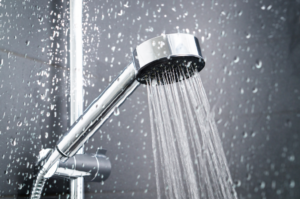
That’s why you’ve come here: you’re looking for signs that your water softener is experiencing impairment. Fortunately, we can help you identify those signs. Without further ado, here are four common signs that your water softener needs repair in Elgin, Illinois.
1. Your Soap is Producing Very Few Suds
One of the surest signs that your water softener is in need of repair is that your water struggles to produce suds when mixed with soap. This problem arises due to the calcium and magnesium content of hard water. These two minerals interfere with the chemical reaction that occurs between water and soap, vastly reducing the number of suds they are able to produce.
In short, if you notice a sudden lack of suds when washing your hands, washing the dishes, or taking a bath, your water softener is likely in need of a repair. It’s recommended that you have it inspected by a water purification specialist as soon as possible.
2. There’s Limescale on Your Sink
Another sign that your water softener is impaired is that limescale is starting to build up on your sinks, faucets, and other water-related entities. Limescale is a visual manifestation of calcium and magnesium particles. Appearing in place of evaporated water, it’s a clear indication that your water is hard.
If you’re dealing with limescale buildup despite the fact you own a water softener, your water softener is likely not performing up to par. Unless you’ve forgotten to add softener salt, you may need to bring in a repair technician to assess the problem.
3. Your Skin is Drier Than Usual
Have you noticed an increase in the dryness or roughness of your skin? If so, there are a number of potential causes. While a recent drop in humidity could be the culprit, an impairment in your water softener could be the problem as well.
When a water softener ceases to operate as intended, calcium and magnesium are allowed to exist within its corresponding water supply. When this water supply is used to take showers or baths, the calcium and magnesium contained within it cling to the skin, clogging pores and blocking the secretion of the body’s natural oils. The result of this? Dry, rough skin.
Hoping to optimize the health of your skin? A water softener repair could be very beneficial.
4. You’ve Encountered a Salt Bridge
Over time, as they go through regeneration process after regeneration process, water softeners can become clogged. Clogs present themselves in a number of ways. However, the most extreme type of clog is the salt bridge.
A salt bridge is a hardened chunk of salt that forms within a water softener, blocking its flow of water and impairing its ability to remove calcium and magnesium. Fairly recognizable, salt bridges are typically easy to spot.
If you see a salt bridge in your water softener, it’s recommended that you hire a repair specialist as soon as possible. Generally, your softener will cease to properly function until the bridge has been removed.
Utilize Water Softener Repair Company in Elgin, Illinois
Is your water softener no longer performing as it should? In need of water softener repair in Elgin, Illinois? If so, the water softening specialists with DuPage Water Conditioning are here to help.
Our team has repaired countless water softeners throughout Elgin and its surrounding areas. Regardless of the problem you’re facing, our team can handle it.
Contact us today to schedule an appointment!
